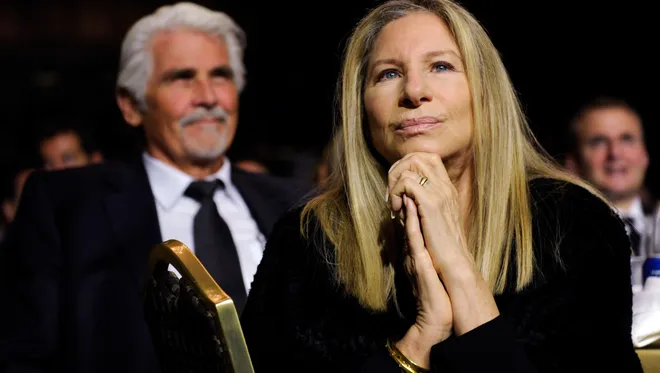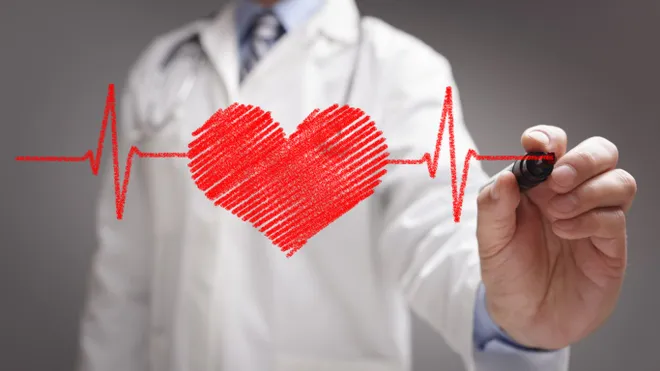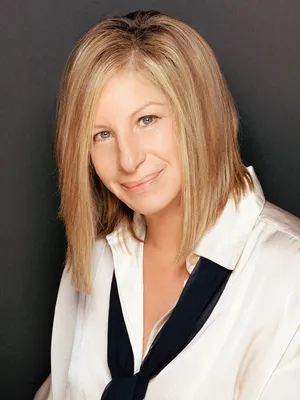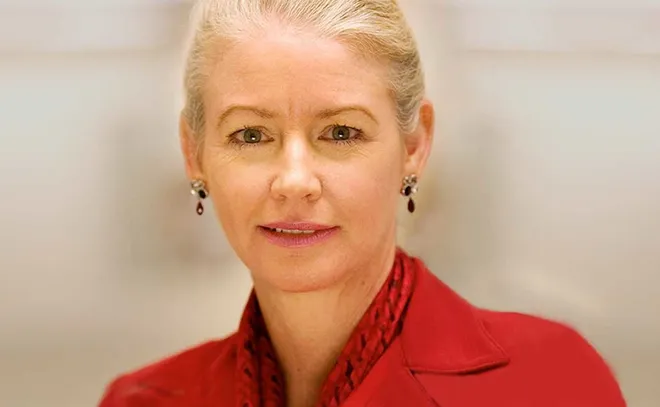It's not 'all in their head.' Heart disease is misdiagnosed in women. And it's killing us.
February is American Heart Month – when cardiovascular disease, the No. 1 killer of women, gets its moment in the spotlight. Every year when this month comes around, as co-founders of a women’s heart health organization dedicated to fighting gender inequity in cardiovascular research, treatment and prevention, we wonder the same thing: How far have we come?
Yes, we’ve made progress. After years of stagnation, sex-specific research is steadily increasing. We’ve funded the first large-scale heart disease outcome trial in women, aptly named WARRIOR, with results due later this year. There’s a greater understanding of the biological differences between men’s and women’s hearts.
Yet gaps remain. Awareness of heart disease is on the decline among women – especially younger ones, who are at increased risk. Only 38% of clinical trial participants are women, and research is chronically underfunded.
Fewer than 20% of medical schools have sex- and gender-based curriculum that goes beyond obstetrics and gynecology. And women are more concerned about other parts of our bodies, when in fact the heart – our very essence – is at higher risk.
There’s another factor contributing to heart disease’s stubborn hold, and it’s dangerously underdiscussed: Heart disease in women is often completely missed or its diagnosis delayed.

Heart disease in women is too often misdiagnosed as 'all in their head'
Confusion surrounding the unique signs of heart disease in women, compounded by systemic issues, has created a crisis of misdiagnosis. Even when presenting with symptoms of heart disease or cardiac distress, women are too often told it’s "all in their head."
Fixing this problem will require more, and better, action from doctors, medical schools, policymakers and women themselves.
While there’s scant data on the overall impact, there’s little doubt that misdiagnosis is all too common. Here’s what we’ve heard women say:
“The EMT advised me to breathe into a bag. He said I was having a panic attack.”
“A cardiologist said to me, ‘Young lady, I’ve been doing this for 30 years. I am telling you it’s not your heart. I’m going to send you back to your doctor to have your nerves checked.’ ”
“A doctor told me that my arm pain was tennis elbow and to wear a brace. In fact, I was having a heart attack.”

These are the stories of real women who have been misdiagnosed – with near-deadly consequences. It’s impossible to capture the voices of the women who “felt off,” went to the hospital, were sent home and died of a heart attack in their sleep.
Misdiagnosis is a crisis hiding in plain sight. Women presenting with symptoms of heart disease are routinely dismissed, gaslighted or given a mental health diagnosis. Because women’s symptoms of heart disease can be subtle and differ from men’s, missed or delayed diagnosis can result – not only by health care professionals but also among women, who aren’t aware of the signs to look out for.
Alabama IVF ruling:An embryo that could be my second child is in Alabama. A court just put that in jeopardy.
Disparities in medical system mean disparities in care
At the heart of misdiagnoses are profound gender disparities. Just a little over half of physicians and cardiologists report they feel prepared to diagnose a heart attack in women. Women are less likely than men to be admitted to the hospital, receive thorough evaluations that can identify heart problems or be given lifesaving procedures.
More women than men die within a year of having a heart attack. And women – especially women of color – wait an average of 11 minutes longer to see a physician than men who reported chest pain.
Misdiagnosis is a personal affront – an infuriating example of how women are often not heard and our health concerns dismissed or belittled.
It comes out of systemic issues: inherent bias in the health care system, how medicine is taught, underfunding of gender-specific research and an old guard of doctors who can’t – or won’t – advocate for change. Rushed health care professionals have less time to make an accurate diagnosis, and many patients have limited or no access to heart specialists.
And, yes, it’s also because women don’t know enough about cardiovascular disease to connect what’s going on in our bodies to our hearts. We often downplay symptoms, blaming stress, menopause or aging – or just ignore the warning signs completely.
Misperceptions that heart disease is an “older” woman’s problem also abound, with chilling implications for young women, who have worse outcomes following a heart attack and tend to wait longer to seek out treatment. Cardiovascular disease is the leading cause of pregnancy-related mortality in the United States, endangering the lives of young women, especially women of color.
Health care inequities:Why are so many Black patients dying from heart failure?
Know the signs of heart attack in women
Ending the crisis of misdiagnosis cannot, and should not, rest solely on women’s shoulders. But greater awareness and self-advocacy can go a long way toward prevention. Knowing the unique signs and symptoms of a heart attack in women – chest pain or pressure; jaw, throat, back, arm or neck pain; shortness of breath; extreme fatigue; nausea or vomiting; heartburn or indigestion – is critically important, as is being specific and direct with health care professionals when experiencing symptoms.
On a systemic level, we also need more gender-specific research on cardiovascular disease. The White House Initiative on Women’s Health Research, led by first lady Jill Biden and the White House Gender Policy Council, hopes to fill significant gaps in research, with the goal of better understanding how to diagnose, treat and prevent cardiovascular disease in women.

We also need to to better integrate sex and gender differences into medical school curricula. Given that heart disease is the leading killer of women, it should be a requirement that every medical student learn what we’ve known for years – that women’s hearts are different from men’s.

Lastly, we are calling for a nationwide public health campaign to make sure that heart disease awareness and prevention messages reach every corner of America.
Most of us don’t know our risks, and it’s killing us. Let’s change that. American women deserve better.
Barbra Streisand is an acclaimed artist and activist. Dr. Noel Bairey Merz is director of the Barbra Streisand Women’s Heart Center in the Smidt Heart Institute at Cedars-Sinai, and scientific adviser to Women’s Heart Alliance.
Disclaimer: The copyright of this article belongs to the original author. Reposting this article is solely for the purpose of information dissemination and does not constitute any investment advice. If there is any infringement, please contact us immediately. We will make corrections or deletions as necessary. Thank you.







